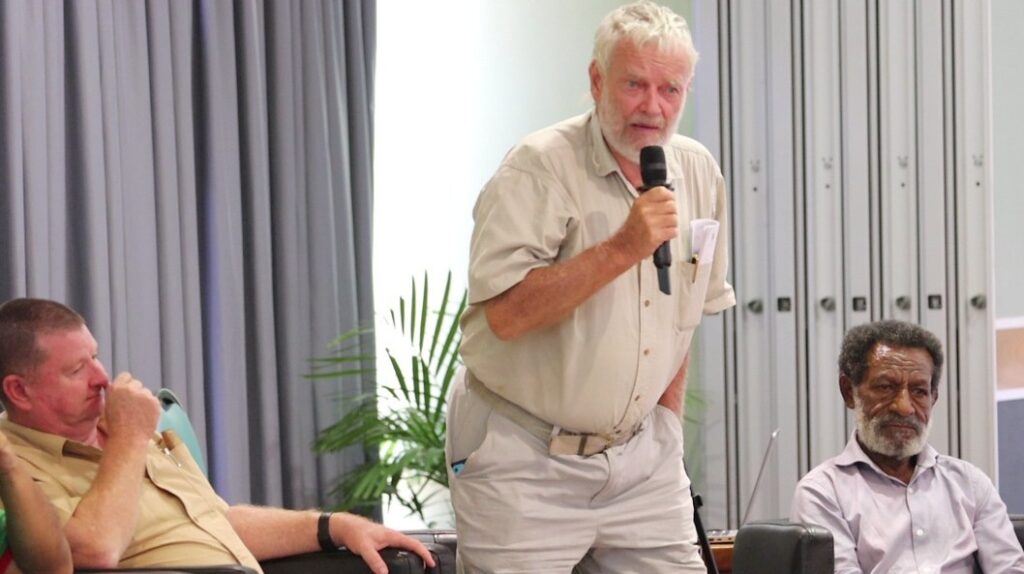Lae, April 9, 2025 –Veteran livestock advocate Steve Farhall has delivered a stark assessment of Papua New Guinea’s agricultural landscape, declaring that the livestock sector is in a “desperate state of decline” and calling for urgent national action on law and order, infrastructure, market access, and education.
Speaking during the National Agriculture Industry Public-Private Sector Partnership Conference in Lae, Farhall – a naturalised citizen who works with cattle farmers in the Tewai-Siassi area of Morobe – warned that the country’s failure to develop a functioning industrial base and educated workforce is holding back progress and putting long-term sustainability at risk.
“The industry is in a desperately poor state. Law and order is an issue. Market access is an issue. Transport is an issue. And education is an issue,” Farhall said.

Critique of Industrial and Policy Failures
Farhall criticised the lack of meaningful industrial development since independence, pointing out that very few jobs have been created annually over the past five decades—a figure he described as a “disgrace.”
He challenged ongoing comparisons of PNG to countries like Malaysia and Indonesia, stating that those economies were already industrialised and had educated workforces before they developed oil palm or other commercial agriculture.
“We didn’t have that foundation, and we still don’t. It’s unfair and unhelpful to compare ourselves to those countries when we are still struggling to meet basic development needs.”
The Education-Economy Link
Farhall tied the country’s economic underperformance directly to the education crisis, citing a World Vision study indicating that 80% of Papua New Guineans are functionally illiterate.
Based on demographic trends, he estimated PNG’s population to be more than 10 million, growing at 3.5% annually, which adds an estimated 350,000 babies each year. He argued this growth demands at least 10,000 new teachers, classrooms, and teachers’ houses annually just to maintain basic education levels.
“We have to build the education sector and collect revenue at the same time. Hiring 10,000 teachers a year and taxing their incomes would be far better than the 2,000 jobs we’ve been adding yearly.”
Industry Collaboration and Examples of Success
Farhall also called for greater cooperation across the agriculture value chain, urging institutions like the Livestock Development Corporation (LDC) and private sector actors like Ramu Agri Industries to overcome differences and work collaboratively.
“We need to cooperate. LDC needs to work with Ramu. That’s not happening right now—but it must, if we want to revive livestock in PNG.”
He praised the efforts of LDC Managing Director Terry Koim in reclaiming and restoring former cattle ranches, describing it as “an incredible effort” deserving national recognition.
He also acknowledged the work of Rumion in maize production, highlighting it as a sign that local feed and input supply chains can succeed with the right support.
“It can be done. We’ve seen it. We just need more of that commitment, coordination, and cooperation.”
A Call to Get Proactive
In conclusion, Farhall called for urgent attention to security and infrastructure, and for sectors to stop working in isolation.
“There needs to be law and order. There needs to be consultation between sectors. We need to stop waiting and get proactive.”
Ends